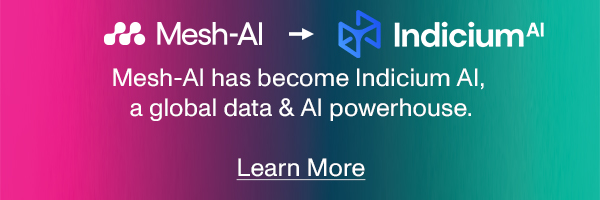


The lack of representation of women in technology is well understood, but the problem goes further when it comes to data and AI. Women make up 50% of the UK population, but only 20% of AI professionals.
In order to increase the number of women in data and AI, it’s important to give people an idea of what it’s like to be a woman in the industry. We feel meeting other people and networking events are integral to this, so we set up the Women in Data & AI Meetup. We (myself and Courtney King who both work in the Talent team at Mesh-AI) created the meet-up off the back of our Data & AI London Meetup to shine a light and specifically empower women in data by giving them a platform to speak to the industry.
We were thrilled to see interest from over 250 people, with more than 100 joining us at our Liverpool Street office for pizza and drinks before listening to three insightful sessions from female speakers at Zoopla, Monzo and Mesh-AI.
Having spoken to many of the women that came, we heard that this type of event was very much needed and we look forward to hosting more of them in the future.
Join our Data & AI London Meetup community!

First up, Naina Kini who is a Principal Delivery Consultant at Mesh-AI gave a talk on fostering a people-centric organisation to boost data literacy.
Naina highlighted the importance of developing a culture that prioritises data literacy and empowers employees to embrace data-centric methodologies confidently. She delved into key elements that contribute to building a people-centric organisation that nurtures data literacy across the workforce.
Some of the key elements she found that contributes to help building a people-centric organisation are employers providing and encouraging trust, simplicity, incentives, communication, sharing and consistency.

Secondly, we had Antje Bustamante who was previously the Director of Data & Analytics at Zoopla and has also been named in the DataIQ top 100 influential data leaders in the UK in 2023. Antje has been working in the industry for about 20 years and spoke to us about some of the things she wished she knew when she started her career in data.
Antje made it clear that no matter your background, how junior or senior you are, there are points that we can all take away - your career can change paths at any time in ways that are out of your control and even if you are the most senior person in the room, it’s fine to ask questions!

Last but definitely not least, Valeria Cortez who is working as a Senior Data Scientist at Monzo took us through how her and her team optimised marketing messages for Monzo’s users by using uplift models.
Valeria and her team's aim at Monzo within the marketing team (by using uplift models) was to boost the effectiveness of their campaigns, comply with contact rules and promote products that better met their users' financial needs.
In Valeria/Monzo’s case, they found their Improved campaign performance, by as much as 200%, compared to traditional targeting.
The steps on how to build an uplift model:
You can read more on Valeria's work at Monzo on her Medium blog.
Going forward we intend to host the meet-up on a quarterly basis, with the next one being in November. We want to ensure the content will be educational, fun and informative for people of all abilities! Please join our meetup page for information on all future events.
If you have an idea for a talk and would like to get involved please get in touch with either Sarah Scrutton or Courtney King. See you at the next one!!
